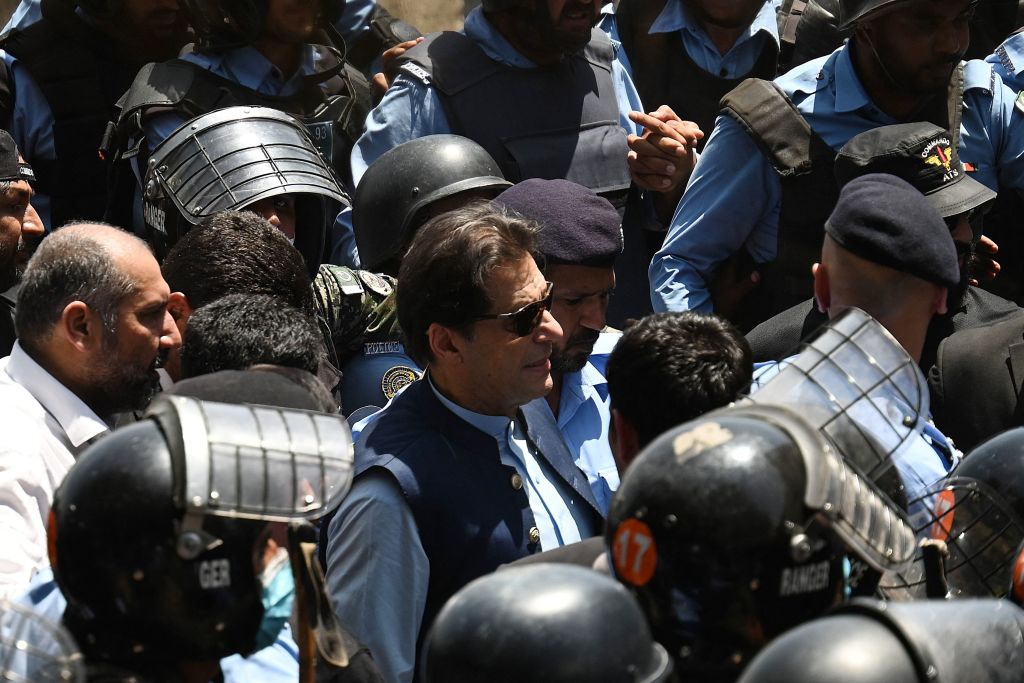
Planet A
The United States and Papua New Guinea have signed a new defence and maritime cooperation agreement to combat illegal fishing, illegal logging and drug smuggling in PNG waters. The two countries also agreed to further climate-change cooperation when regional leaders met in Port Moresby for the US–Pacific Islands Forum Leaders’ Dialogue.
At the forum, Secretary of State Antony Blinken reaffirmed the US commitment to mitigate the impacts of climate-change-driven sea-level rise. The declaration addresses concerns outlined in the Pacific security outlook report 2022–23, including the knock-on effects of rising sea levels on oceanic fishery revenues, territorial integrity and potentially statehood. The US also pledged an additional $12.5 million in aid to strengthen PNG’s critical resources and systems and help make local communities more climate resilient.
These developments hint at how PNG is at the forefront of intensifying US–China competition, with the Pacific island nation receiving more investment and high-level visits than in decades past. The broader uptick in US–Pacific political dialogue shows that not all defence partnerships are necessarily about preparing for conflict.
Democracy watch
The arrest of former Pakistani prime minister Imran Khan triggered fresh protests in Pakistan, escalating the country’s ongoing political crisis. Khan’s arrest was officially over corruption charges against him and his wife. However, the move came soon after Khan accused a senior military officer of orchestrating an assassination attempt against him last year, suggesting that it was more about the growing animosity of Pakistan’s all-powerful military towards Khan than about cracking down on corruption in the country.
The protests targeted army institutions and some led to violent clashes with the police and military. In response, workers and leaders of the Pakistan Tehreek-e-Insaf, Khan’s party, were arrested. The government is also considering banning the party. An anti-terrorism court in Lahore permitted the trial of 16 civilians in army courts for participating in violent protests, a decision that potentially violates Pakistan’s obligations under international law.
Khan is the seventh former prime minister to be arrested in Pakistan. The unfolding crisis repeats past patterns of political upheaval in the state and the notoriously unstable relationship between its political and military leaders. The crisis could affect the general elections scheduled for October, and forcefully quashing Khan in the lead-up could foster domestic disillusionment with democratic political institutions, given the support he enjoys.
Information operations
A senior Chinese foreign ministry spokesperson has accused the US and its Five Eyes partners of waging a ‘disinformation campaign’. The claims were in reaction to the release of statements issued last week by Microsoft and the US in collaboration with international cybersecurity authorities that outlined the role of a Chinese state-sponsored actor, ‘Volt Typhoon’, in infiltrating US critical infrastructure since mid-2021. The Chinese foreign ministry said that the allegations were ‘a collective disinformation campaign of the Five Eyes’ and accused the US of ‘expanding new channels to spread disinformation’.
The comments come amid ongoing tensions between the US and China, including over Chinese aggression in the South China Sea and the potential for conflict over Taiwan. As US–China competition continues to escalate, cyber operations such as Volt Typhoon’s activities will continue to play a role. For one, there are concerns that Chinese-sponsored actors may hack critical infrastructure in Taiwan and disrupt key services to support a potential invasion of Taiwan.
Follow the money
Last week, Georgian Prime Minister Irakli Garibashvili vehemently opposed the EU’s proposition to sanction third-party nations engaged in business with Moscow. Georgia is among several countries in the Caucasus and Central Asia that have experienced a surge in trade with Russia since the war in Ukraine began in February 2022.
Despite being Russia’s second largest trading partner, Georgia has recorded annual trade turnover with Russia below $1 billion, a fraction of the substantial trade volume between Russia and the EU. Garibashvili underscored the minimal repercussions that would ensue from his nation imposing sanctions on Russia, while highlighting the detrimental damage they would inflict on Georgia’s economic stability.
Although supportive of Ukraine, Georgia confronts a delicate predicament due to its geographical proximity to Russia and the occupation of its own territories. Despite the resumption of direct flights between Tbilisi and Moscow drawing condemnation from both the EU and domestic critics, Garibashvili has affirmed that Georgia’s economic relations with Russia will persist.
Terror byte
The US is facing a growing incidence of domestic terrorist attacks perpetrated by right-wing extremists. Since 2016, there has been a significant increase in the frequency of assaults committed by right-wing extremists, largely fuelled by the Republican Party’s escalating wave of right-wing discourse specifically targeting minority groups. Since the 2020 election, the dissemination of false narratives about election interference has also played a role.
According to a University of Maryland dataset, approximately 95% of domestic extremists in the US are on the far-right. Two recent incidents reflect this trend—a white supremacist’s lethal assault on African Americans in Buffalo and a self-proclaimed white nationalist’s shooting spree in El Paso targeting Hispanic individuals.
The same dataset showed that while organised factions once held prominence, the perpetrators of such crimes now operate primarily—around 70% of the time—as lone actors or as part of small, isolated cliques. Typically, they are deeply entrenched in online communities that facilitate access to extremist concepts and organisations. The impact of such rhetoric was particularly evident in the 6 January 2021 insurrection at the US Capitol. With inflammatory discourse and violent threats to public officials increasing, it’s likely these trends will persist in the lead-up to the 2024 election.

